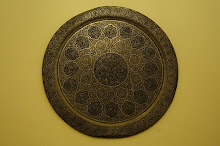“In my judgment certainly, nothing at all dies in this sensible world... for if any part of it is released from one conjunction, it does not perish but passes over to another association.”
- Adelard of Bath, On the Use of the Astrolabe
While he was a young man studying at the famed French cathedral school of Tours, Adelard of Bath, an 12th century Englishman of noble lineage, underwent a life changing experience. Following a lesson about star constellations given by a wise man at the academy, Adelard, smitten by what had become a huge love of learning, went for a walk in the forest on the edge of town to process his knowledge.
While in nature’s bosom, Adelard experienced a profound mystical vision. He recounts being approached by two women: one holding out wealth and fame, and the other offering knowledge. He says that despite a moment of material temptation, he accepted the latter. The episode would not only consolidate the scholar’s personal trajectory, but also that of the civilization to which he belonged.
Adelard of Bath went on to become an early conduit and pioneer of Arab wisdom and learning, bringing the wonders of ancient science to a medieval West that was starved of knowledge. Although talented, privileged and driven by enough curiosity to make the kind of difficult cross-continental journey that few people in his day would think of doing on their own, the main impetus for Adelard’s travels to the Middle East was an inner need that stirred within him and its connection to the wider destiny of humanity.
Europe in the 12th century was in a state of disarray. Poverty, violence, material backwardness and social instability were rife. The classical knowledge of ancient Greece had been lost to the West because few people could read Greek, as the ancient Romans once did. The handful of schools which existed offered low-level learning compared to what had for centuries been on offer in Arab and Islamic lands. The earliest trickling of that knowledge was just starting to reach Europe, but much of it was still too difficult to decipher.
Adelard, who had a propensity for learning, was cognizant of the sad state of Western knowledge; so much so that he came to disdain European learning, becoming transfixed upon the wisdom available in other lands. A journey to southern Italy and Sicily (areas adjacent to the Middle East) confirmed for him that he was intellectually confined in northern Europe. He decided once and for all to break free and fling himself into the high cultural firmament – and political turmoil - of the Middle East.
Adelard left for the Arab lands in 1109, in the early years of the Crusades. Apart from a few key details which he later provides, we know little about his time in the Middle East. Adelard spent roughly seven years abroad, basing himself in Antioch on the Mediterranean coast of Syria, then ruled by the city state of Pisa and the crusaders who had recently arrived. There he found a huge treasure trove of Arabic translations of ancient Greek texts produced by the House of Wisdom – among them, works on geometry, astronomy, and chemistry. Adelard learned Arabic on his travels and mingled with Islamic scholars and wise men that aided him in his quest.
When he returned to Europe, Adelard became a respected luminary and inspiration to successive generations of adventurer-scholar-translators, producing about a dozen books in Latin packed with crucial learning.
Among them was his works on Euclidean geometry, which became the cornerstone of the west’s sciences for hundreds of years. All subsequent scientific thinking, including logical deduction and work in architecture and astronomy in Europe was revitalized by his translation of Euclid’s Elements.
Adelard’s translation of al-Khwarizmi’s astronomical star tables, the Zinj al-Sindhind - which contained values for trigonometrical sines and tangents - had an equally profound impact, laying the foundation for the work of Copernicus later in the 16th century.
But he also made other, more philosophical contributions. In a number of works, including his Questions on Natural Science, Adelard employs his favorite literary device – an imaginary dialogue on controversial issues with an unnamed nephew who symbolizes rigid, linear, and traditional Christian thinking symbolic of the old order of knowledge which Adelard sought to overturn.
According to Ernest Scott in his book The People of the Secret, Adelard was also instrumental in one more key injection of knowledge into the West. While in Spain, the Englishman translated a text known as the Encyclopedia of the Brethren of Sincerity – a compendium of knowledge produced in Basra 150 years earlier by a group of illuminates. Concerned with human development, Scott says one of the book’s original purposes may have been “to provide raw material on which natural science could develop in Europe” – implying prescience and specific intent on the part of its authors.
Adelard, the world’s first Arabist, had a profound grasp of Islamic learning and its utility for cultural renewal that would offer in place of Europe’s traditions of blind acceptance and submission to authority, the Arab learning techniques of experimentation, rational thought and personal experience.
He helped the western world grasp and absorb pagan Greek and Hermetic cosmological knowledge - learning that would illuminate a line of spiritual and scientific geniuses that would in turn propel human civilization forward. That, plus the fact that he also lived in a time of cross-cultural conflict - not unlike our own - has done little to reverse his almost total obscurity in the cultures and lands which he so masterfully bridged.














No comments:
Post a Comment